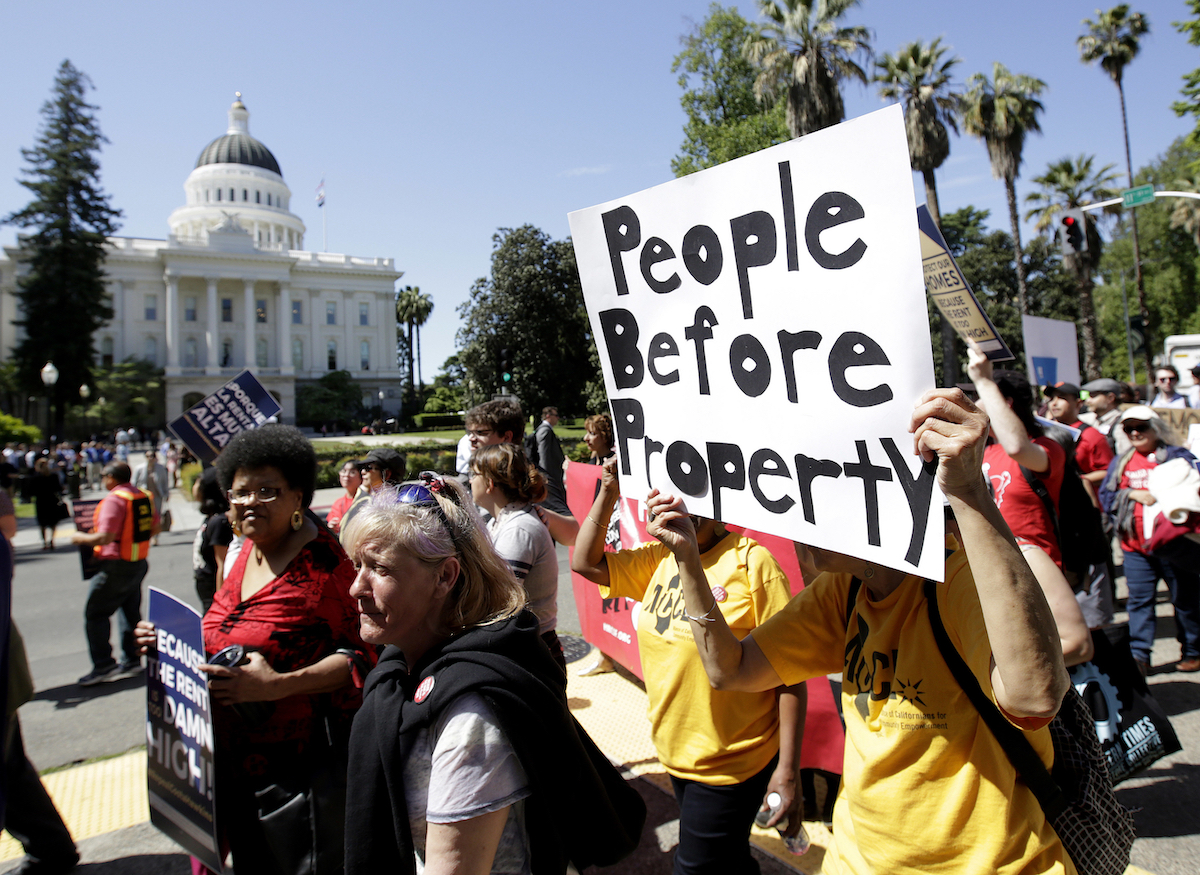The U.S. Supreme Court’s decision to strike down President Joe Biden’s recent renewal of the eviction mortarium as issued by the Centers for Disease Control and Prevention should come as no surprise.
Even President Joe Biden publicly doubted whether his eviction ban was legal, admitting at an Aug. 3 news conference that, “the bulk of the constitutional scholarship says that it’s not likely to pass constitutional muster.” In an Aug. 2 statement, White House Press Secretary Jen Psaki said that, “CDC Director Rochelle Walensky and her team have been unable to find legal authority for a new, targeted eviction moratorium.”
The Supreme Court settled the question of constitutionality in a 6-3 opinion on Aug. 26. But beyond the legal arguments, suppose that Biden did have the power to ban evictions — or suppose Congress decided to go through legitimate channels to ban evictions. Would a ban effectively help low-income renters?
The sentiment behind the ban is certainly admirable. An eviction ban, its proponents argue, would keep families off the streets during the pandemic. Unfortunately, the true impact of the ban will harm the very people it attempts to help. Perversely, the ban will result in higher prices for low-income housing and lower prices for luxury housing. This is because it disincentivizes landlords from investing in low-income housing. The eviction ban threatens the very mechanism for improving the housing supply and creatively adapting to people’s needs.
Some would argue that this market is a zero-sum game. Sure, landlords may lose some income, but renters are in a far more desperate plight. The issue is as simple as deciding who has greater need. Further, they argue, landlords do not really contribute anything productive to society since they simply hold assets.
This is a woefully incomplete view of the economy. In fact, the market is a dynamic force and landlords play a crucial part in improving the housing supply. Landlords acquire properties and adapt them to suit demand. In the current climate, much innovation is needed. Vacant shopping malls and corporate offices can be converted into apartment complexes; duplexes and triplexes can be built to increase options for families. More investors competing in this space will result in better quality housing and lower prices.
The eviction ban does the opposite of this dynamic process. Not only must landlords foot the bill for months of mortgage payments, upkeep and utilities, but they also have no way to plan for the future. The cost of running a rental property has significantly increased. In some cases, investors will go out of business or move their investment to more profitable areas. A survey taken last year among small-scale landlords found that over 30% faced pressure to sell their property due to reduction in income. This is particularly worrisome since small-scale landlords own a large proportion of the affordable housing market.
Now there may be a case to be made for a legal short-term eviction ban by Congress for reasons of public health. But we must first realize that any eviction ban comes with long-term harm to low-income renters. And certainly any months-long ban would be incredibly harmful to the rental market, creating negative impacts for low-income renters for years to come.
This long-term harm ripples out far into the future. When investors are not able to make a profit in one area, they will move to another. Increased risk in running these properties will push landlords to other investment areas. Lower margins in low-income housing mean that renters will move towards luxury housing, where profits are more likely. Under the threat of eviction bans, landlords have even greater cause to discriminate against low-income renters.
The COVID-19 pandemic and lockdown was the impetus for the ban, but what prevents it from being used in other circumstances?
Crises such as fires, flooding, draughts, and, yes, even diseases happen often. Instead of damaging short-term policies, we should focus on how to incentivize landlords to invest.
Landlords must sacrifice in the present and plan for the future. The risk they undertake is only worthwhile if they have a realistic chance of a return on investment.
Instead of disrupting the market process, local and federal officials should look to other means for improving the housing situation for low-income Americans. They should work on creating stable rules. Within these rules, landlords will add value to the economy.
This article originally appeared in The Detroit News on Sept. 7, 2021

